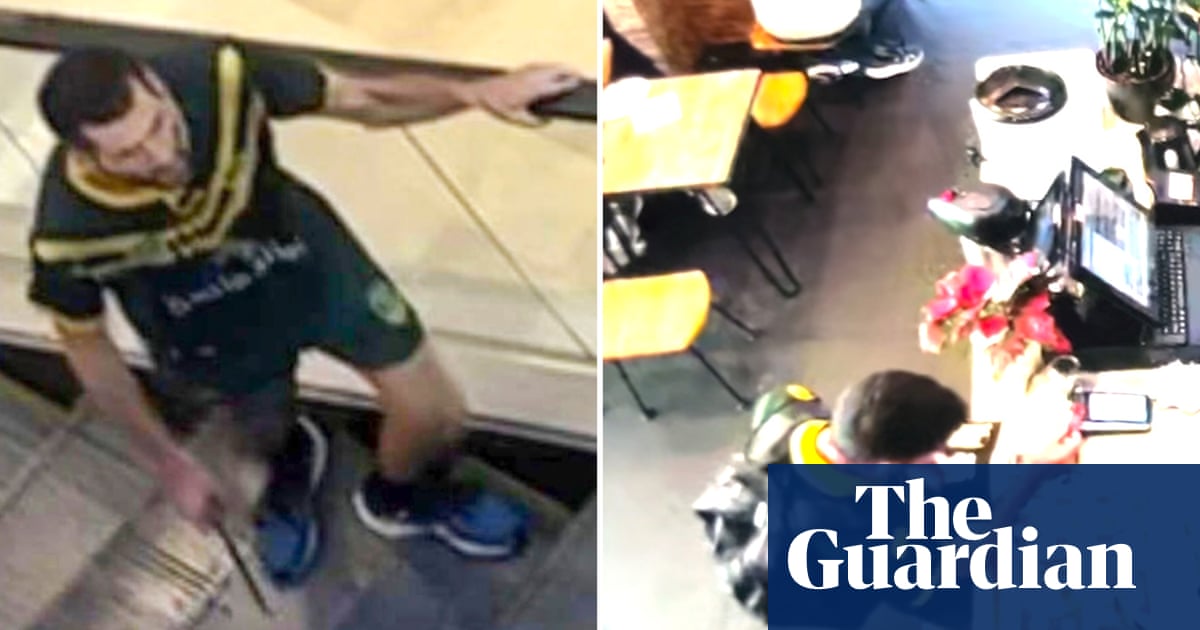A psychiatrist who claimed Joel Cauchi was not psychotic when he stabbed 16 people, killing six, in a Sydney shopping centre has spectacularly withdrawn her comments, calling them “conjecture”.
On Wednesday, the coronial inquest into the attack on 13 April 2024 heard the Queensland doctor, who treated Cauchi from 2012 to 2020, had reconsidered her evidence from the previous day, when she stated Cauchi’s attack was not the result of psychosis but likely due to his sexual frustrations and “hatred towards women”.
Cauchi, 40, killed Ashlee Good, 38, Jade Young, 47, Yixuan Cheng, 27, Pikria Darchia, 55, Dawn Singleton, 25, and Faraz Tahir, 30, and injured 10 others at Westfield Bondi Junction on 13 April last year, before he was shot and killed by police inspector Amy Scott.
“It was shocking evidence to me and my clients,” Sue Chrysanthou SC, the barrister for the Good, Singleton and Young families, told the court on Wednesday, stating that Dr A’s claims the day before were “contrary to all the expert evidence”.
The court had previously heard the expert psychiatric evidence was “clear and unanimous” that Cauchi was “floridly psychotic” when he stabbed the 16 victims.
“It was conjecture on my part and I shouldn’t have speculated four years later after I completed his treatment,” the psychiatrist, known only as Dr A for legal reasons, said.
Chrysanthou asked: “Do you withdraw it?” Dr A replied: “Yes.”
In the fiery exchange with Chrysanthou, the doctor also said that Cauchi’s obsession with sex, including his compulsive use of porn, sexual frustration and visit to a sex worker, emerged for the first time in November 2019, five months after stopping antipsychotic medication, Abilify. But, she said, it was not related to the cessation of the medication.
Chrysanthou asked Dr A whether she believed it was a “coincidence” that for the first time, Cauchi exhibited an obsession with porn, a preoccupation with sex and a paranoia about getting an STI, months after coming off his antispsychotic drugs.
“I want to suggest to you that you understood [those sexual obsessions were] a direct result of him being taken off the Abilify earlier that year,” the barrister said.
Dr A replied: “I didn’t see any connection between the two, I thought it was a new phenomenon.”
On Tuesday, the court heard that Cauchi’s mother repeatedly raised concerns around her son’s behaviour between October 2019 and March 2020 – such as the belief he was under Satanic control, his extreme OCD, compulsive use of porn and changes to his gait – which Dr A initially considered early warning signs of a psychotic relapse but then attributed to stress and fear caused by a risky sexual encounter.
At one point on Wednesday, Chrysanthou suggested that an early warning sign of relapse was a sign or evidence of psychosis.
“That’s not true, I have to educate you,” Dr A told her.
Chrysanthou replied: “I don’t want to be educated, I just want you to answer the question.”
After a tense exchange about the accuracy of using blood tests to determine whether the drug clozapine had therapeutic effects, Dr A told the barrister: “I don’t think you have any degree in medicine.”
The court heard Dr A saw Cauchi on 47 occasions, and her nurses saw him on 77 occasions.
Dr A has repeatedly told the court that in her eight years of treating him, she never saw any evidence of psychosis in Cauchi, that he never showed any signs of being a risk to himself or others and never showed any interest in weapons.
after newsletter promotion
Under Dr A’s care, Cauchi’s medication dose was gradually lowered from 2015. He was unmedicated from June 2019, the court has heard.
The inquest was previously told that Cauchi needed to be deemed at risk of harming himself or others to be detained under the Mental Health Act – and forced to take antipsychotic medication.
Dr A said on Wednesday that because his behaviour did not raise safety concerns, she “never, ever could have overridden his decision,” and that all decisions around reducing and eventually ceasing his antipsychotic medication were made with him.
“We decided that we can’t force the medication and that he was well enough and insightful enough not to take the medication,” she said.
“Never did I form an opinion that his insight was impaired to a degree that I had to override his autonomy.”
The court continued exploring the processes around Cauchi’s discharge from the psychiatrist when he moved to Brisbane in 2020, including how much information she provided regarding his onward care.
Dr A said she had no choice but to hand Cauchi’s care to his GP in Toowoomba, given that he did not have a GP in Brisbane.
The court heard that Dr A’s discharge letter did not provide any detail about his mother’s concerns about Cauchi’s recent behaviour.
During further questioning, it was put to Dr A that “on every occasion” she had been asked about her handover to the GP after discharging Cauchi, her “evidence had changed”.
Dr A made three statements to investigators after Cauchi’s 2024 attack, the court heard. In her second statement, shown to the court, she said she called the GP about the time she discharged Cauchi in March 2020. Her first statement did not include that evidence.
The GP’s barrister told the court that the GP did not have any memory of that phone conversation. “It’s not a figment of my imagination,” Dr A told the court, adding she might not have a precise recollection of the call.
When Cauchi returned to Toowoomba years later, he did not make contact with Dr A, who told the court it was “very unfortunate” that there were no attempts to resume contact.

